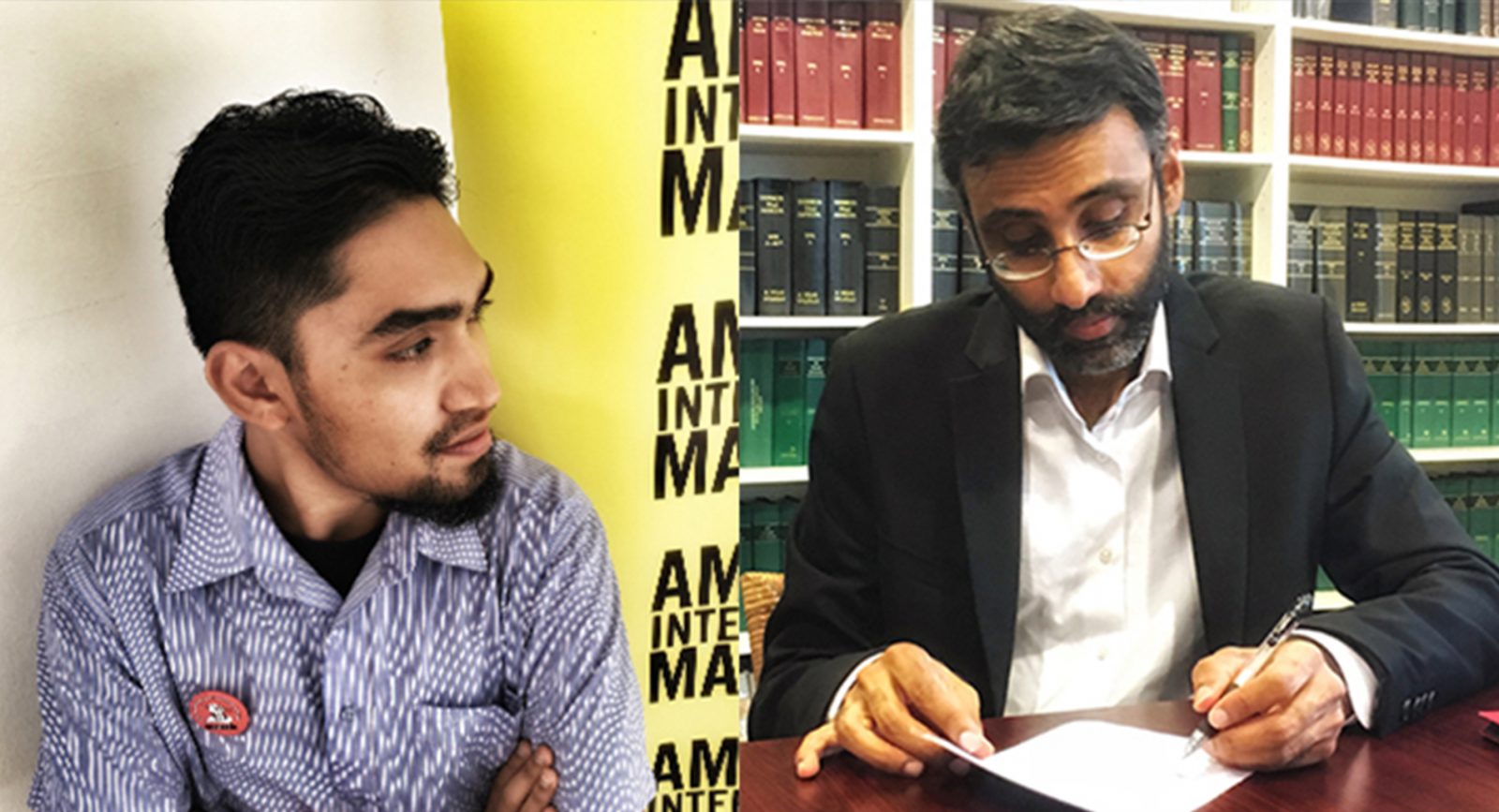The Malaysian authorities must immediately and unconditionally drop all charges that have been brought against N. Surendran, a lawyer and opposition lawmaker, solely for criticising a court verdict in 2014 concerning his client, the de facto opposition leader and prisoner of conscience, Anwar Ibrahim.
On 24 June 2016, the High Court of Kuala Lumpur found the Sedition Act to be constitutional, and that sedition charges brought against N. Surendran are still valid. This decision sets a dangerous precedent not only for the continued use of the Sedition Act against government critics, human rights defenders and activists, but also raises concerns on the right of individuals to legal representation and defence. N. Surendran’s lawyers filed their appeal against the decision of the High Court on 27 June 2016 to the Court of Appeal.
Amnesty International believes that the criminal charges brought against N. Surendran are politically motivated, prevent him from carrying out his work independently, and amount to harassment and intimidation. According to international human rights standards, governments should ensure that lawyers are able to perform their professional functions without intimidation, harassment, hindrance or improper interference.
According to international human rights standards, governments should ensure that lawyers are able to perform their professional functions without intimidation, harassment, hindrance or improper interference.
The organisation is also concerned about increasing attempts by the authorities to silence lawyers expressing critical views and opinions about the government. More recently, on 31 March 2016, police hauled up four lawyers Karen Cheah, Charles Hector Fernandez, Francis Pereira and Shanmugan Ramasamy to record their statements. This was carried out due to a motion that was tabled at the Annual General Meeting of the Malaysian Bar, calling on Attorney General Mohamed Apandi Ali to resign over his handling of a corruption case involving Prime Minister Najib Razak and his alleged link to financial scandals.
By prosecuting lawyers that call for accountability of the government or are simply carrying out their professional duties, the Malaysian government is undermining the rule of law. Lawyers, like other individuals are entitled to freedom of expression, belief, association and assembly. In particular, they have the right to take part in public discussion of matters concerning the law, the administration of justice and the promotion and protection of human rights, to join or form local, national or international organizations and attend meetings, without suffering restriction by reason of their lawful action or their membership in a lawful organization.
Lawyers, like other individuals are entitled to freedom of expression, belief, association and assembly.
Ever since 2013, critics of the Malaysian government have faced an unprecedented crackdown on dissent. In 2016 alone 21 individuals have been either arrested, investigated, charged or detained under the Sedition Act for a wide range of acts, from sharing caricatures of the Prime Minister to Twitter comments on royalty.
The Malaysian authorities’ relentless use of the Sedition Act amounts to a serious assault on freedom of expression that has had a chilling effect on public debate in the country.
Amnesty International calls on the Malaysian authorities to immediately end continuing harassment and intimidation of lawyers, drop all charges against lawyers, human rights defenders and other individuals prosecuted under the Sedition Act, and to quash all convictions under the Act.
Background
In August 2014, two separate sedition charges were brought against N. Surendran, both connected with critical comments made in connection with Anwar Ibrahim’s criminal appeal of his sodomy charge. The first was related to a press statement he issued claiming the decision of the Court of Appeal in this case was ‘flawed, defensive and insupportable’, while the second was for commenting on the court decision on a Youtube video. This is the first incident of a lawyer being prosecuted under the Sedition Act 1948 when carrying out his duties in providing legal representation to his client.




